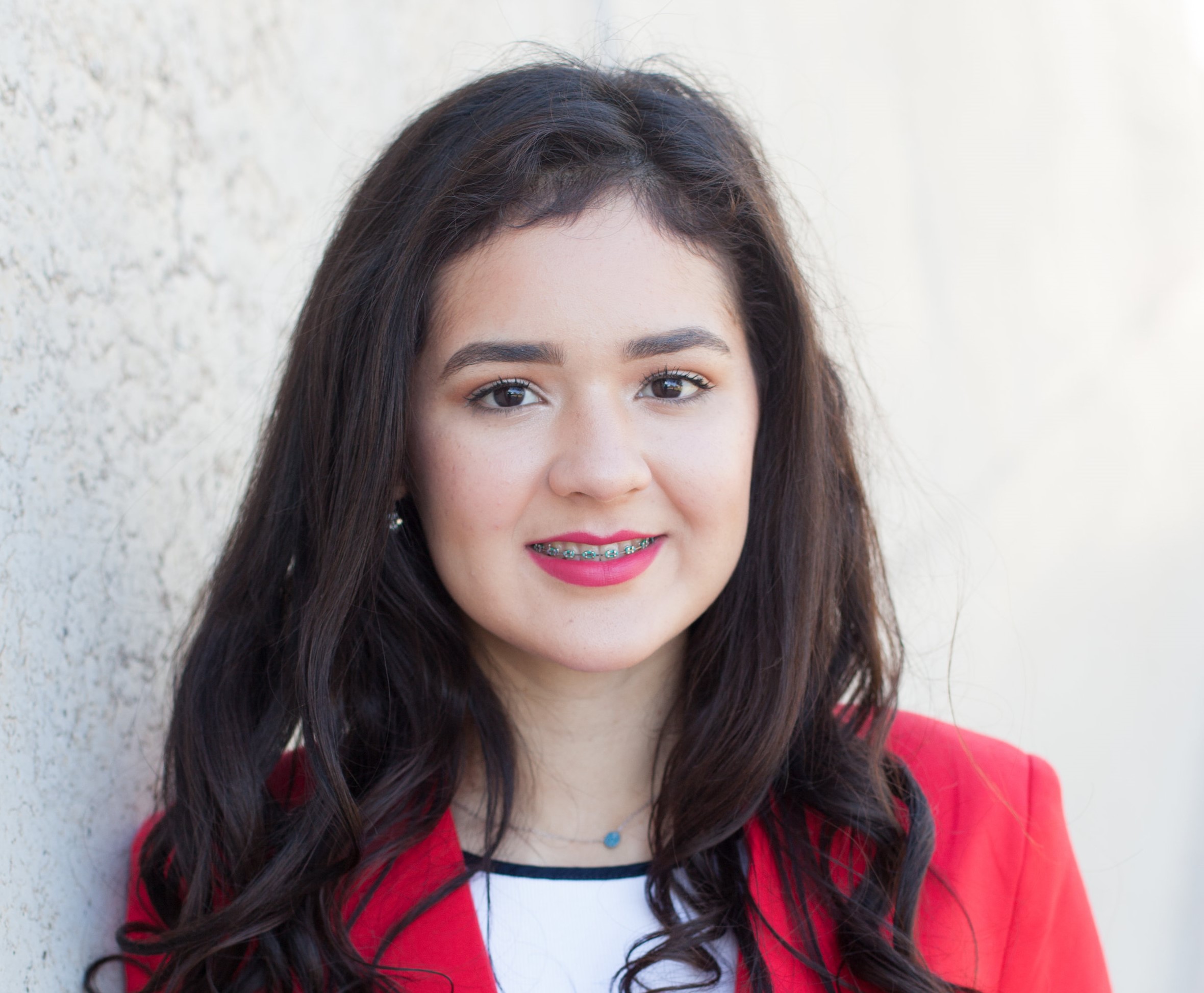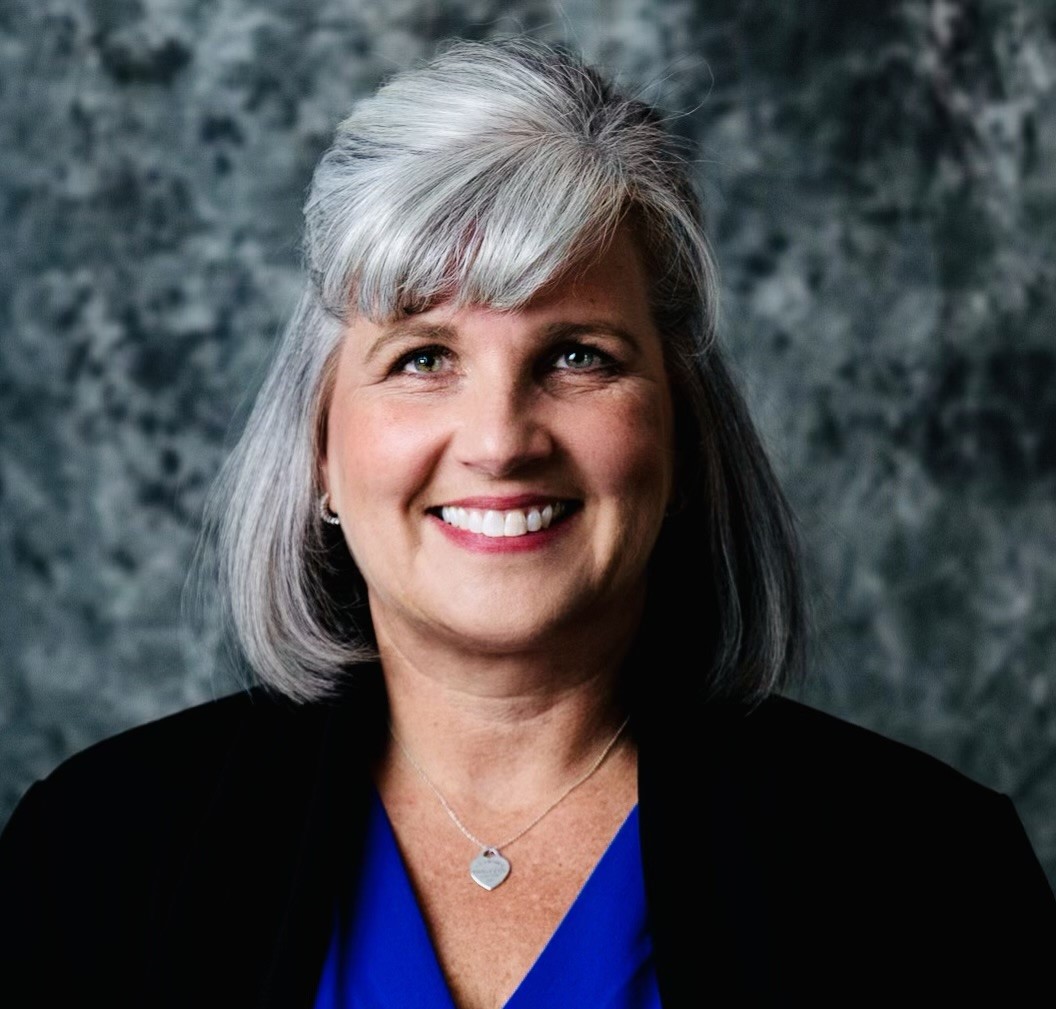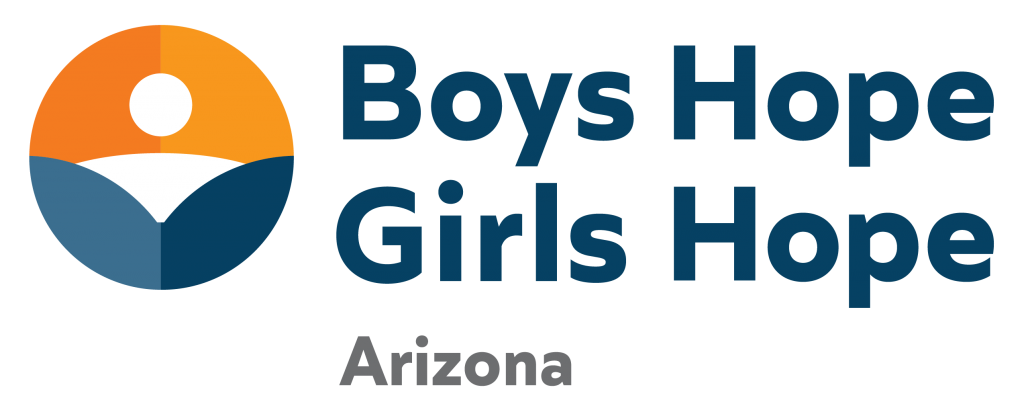We Are Boys Hope Girls Hope of Arizona
Boys Hope Girls Hope firmly believes that young people have the power to overcome adversity, realize their potential, and help transform our world. They create these successes when we remove obstacles, support and believe in them, and provide environments and opportunities that build on their strengths.
Boys Hope Girls Hope of Arizona helps motivated middle school and high school students rise above disadvantaged backgrounds. Our goal is to graduate young people who are physically, emotionally, and academically prepared for post-secondary education and a productive life, breaking barriers so they can become community-minded leaders.
Boys Hope Girls Hope of Arizona is a proud member of the Boys Hope Girls Hope Network. Our Network Headquarters, located in St. Louis, Missouri, connects, provides leadership to, and offers signature college-preparatory programming to 16 affiliates. Each affiliate is independently incorporated, governed by its own board of directors, and responsible for its own fundraising. Affiliation and services agreements link the Network to ensure mission and brand fidelity, quality operations, maximum functional capacity, and consistency in training, programmatic standards, and best practices.
OUR MISSION
To nurture and guide motivated young people in need to become well-educated, career-ready men and women for others.
OUR DNA
These are the fundamental and distinctive characteristics of our organization.
Academic Focus
We believe in the transformative power of education to develop lifelong learners.
Service and Community Engagement
We believe in the Jesuit-inspired, values-centered hallmark of building “persons for others.”
Family-like Settings to Create a Sense of Belonging
We believe youth derive their energy and sustenance from exposure to nurturing environments.
Long-Term and Comprehensive Commitment
We believe an enduring relationship with youth holds the most promise for attaining positive outcomes.
Faith-Based Values
We believe that a loving God cares about the life of every individual and we manifest this belief.
Voluntary Participant Commitment
We believe in the motivational power of self-selection into the Boys Hope Girls Hope program.
“To me, being a Boys Hope Girls Hope scholar has been defined by the environment I was fortunate to grow in during middle school and high school. One in which I was able to flourish despite adversities, passing the threshold to test my own limits, knowing that Boys Hope Girls Hope was with me every step of the way.”
ARANZAZU
BHGH Alumna, Yale University graduate ~ Enviromental Engineering


LOCAL IMPACT
HISTORY
1989
1998
1999
2004
2012
2017
2019
Boys Hope Girls Hope of Arizona celebrates its 30th Anniversary!
2023
Boys Hope Girls Hope AZ Launches Strategic Growth Initiative. Residential program closed June 2023 and expanded the Academy program to double the scholars served by 2030!
2024
BHGH says farewell to Amy Pfeifer, Executive Director! We are forever grateful for her tenure, dedication and commitment to BHGH AZ!
BHGH brings on new Executive Director, Stephanie Bridgeo.
LEADERSHIP
The Boys Hope Girls Hope of Arizona Board of Directors and staff leadership collaborate to ensure mission fidelity, financial stewardship, and transparency. This team of professionals is committed to continuous learning, effective programing, and improvement through impact evaluation and innovation.

Stephanie Bridgeo
Executive Director
Marghan Miller
“Arizona needs a well-educated and diverse workforce to face the challenges ahead and quality education is the starting point.”
Meghann Gintz
“I believe in the long-term commitment to scholars and their families as we strengthen our community through access to education.”
Tiffany Adkins-Hardy
As a 1st generation graduate, I immediately connected with Boys Hope Girls Hope’s mission to empower youth to overcome challenges and succeed in all aspects of life.
Alexandra Harmon
“I love the balance of academics and personal growth that Boys Hope Girls Hope offers our scholars.”
Melvin Reyes
I believe when a young person has access to a quality education, the world will open up for them.
Ceci Hartke
I believe when a young person has access to a quality education, the world will open up for them.
OPEN POSITION
Carlos Celeya
“Helping youth is crucial because it empowers the next generation to overcome challenges, achieve their potential, and build a brighter future for themselves.”
David Solis Lopez
As an alumnus of BHGH, the organization helped me discover a whole new world and I am excited to help scholars discover their passion.
Carmen Brown
Are you interested in joining our Board or Associate Board?
LET US KNOW!
BOARD OF DIRECTORS
Mark Williams, Chair
KW Law, LLP
Jose Leon, Previous Past Chair
Leon Law PLLC
Lee Ann Fennessy, Secretary and Governance Chair
Community Volunteer
Derek Flint, Program Chair
Snell & Wilmer Law
Jill Zimmerman, Treasurer & Finance Chair
Brophy College Preparatory
Brad Amico
World Wide Technologies
Scott Ellsworth
SRS Real Estate Partners
Timothy J. Fyan
Tull Forsberg & Olson PLC
Laura Walsh Giesecke
Brophy Community Foundation
Kyle McMillian
UMB
Kelsey McKone
Fundamental Income
Kristin Ostby de Barillas
(Ex Officio) BHGH International
Emily Palumbo
Community Volunteer
Kristin R. Venberg
Brophy College Preparatory
Ty Vilhauer
Newmark Group Inc.
EXECUTIVE DIRECTOR
Stephanie Bridgeo
ASSOCIATE BOARD
Kate Keller
President
[email protected]
Will Graham
Secretary/Treasurer
[email protected]
Sierra Sanchez
Chair, Fundraising, Events
[email protected]
Zach Schroeder
Chair, Governance
[email protected]
Colin Oca
Chair, Membership
[email protected]
Erin Bratton
Andrew Cropper
Paloma Diaz Scheiferstein
Chase Gabriel
Paulina Gonzalez
Andrew Hall
Julia Kmiecik
Craig Kober
Natalie Long
Brian McCormick
Kevin Moyer
Kenny Pham
Alvaro Romero
Matt Schmidt
Patrick Touche
Anna Tramutolo
Matthew Villa
Brian Wendel
Jeffrey Williams
EMERITUS BOARD
William Bidwill †
Arizona Cardinals
Gerald Bisgrove
Stardust Foundation
William Catalonotte
Hensley & Co, Retired
Lee Cohn
Triple LC
Carla Consoli
Lewis Roca Rothgerber
Robert Delgado
Hensley Beverage Company
Philip Dion
Del Webb Corporation, Retired
John Eldean
Alliance Bank of Arizona
Bob Fessler †
United States Air Force
F. Michael Geddes
Geddes and Company
Julie Hancock
Camelot Homes
Mark Hancock
Camelot Homes
William Hodges
Miller Russell & Assoc.
Jackie Hutt
Playmakers
Dave Koeninger
Arizona Cardinals
Hope Levin
MRL Partners LLC
Donald Loback
Community Volunteer
Al Lorenzi
ABL Wealth Management
Rev. Robert Mathewson, SJ †
Bellarmine College
Steven Matteucci
BMO Harris Bank
Don McFall
ADM Properties
Honorable Thomas W. O’Toole †
Maricopa Cnty Superior Court
Tony Palumbo †
Palumbo, Wolfe & Palumbo
Richard J. Perry
Dibble & Associates, Retired
Rev. Edward Reese, SJ
St. Ignatius College Preparatory
Adria Renke
Brophy College Preparatory
Robert Russell †
Russcor Financial, Inc.
J. Russell Skelton
Jones, Skelton & Hochuli
Cheryl Vogt
Retired from Marsh Inc.
R.J. Williams, Sr.
Cadillac Products, Inc.
Bradley Wright
Squire Patton Boggs
